
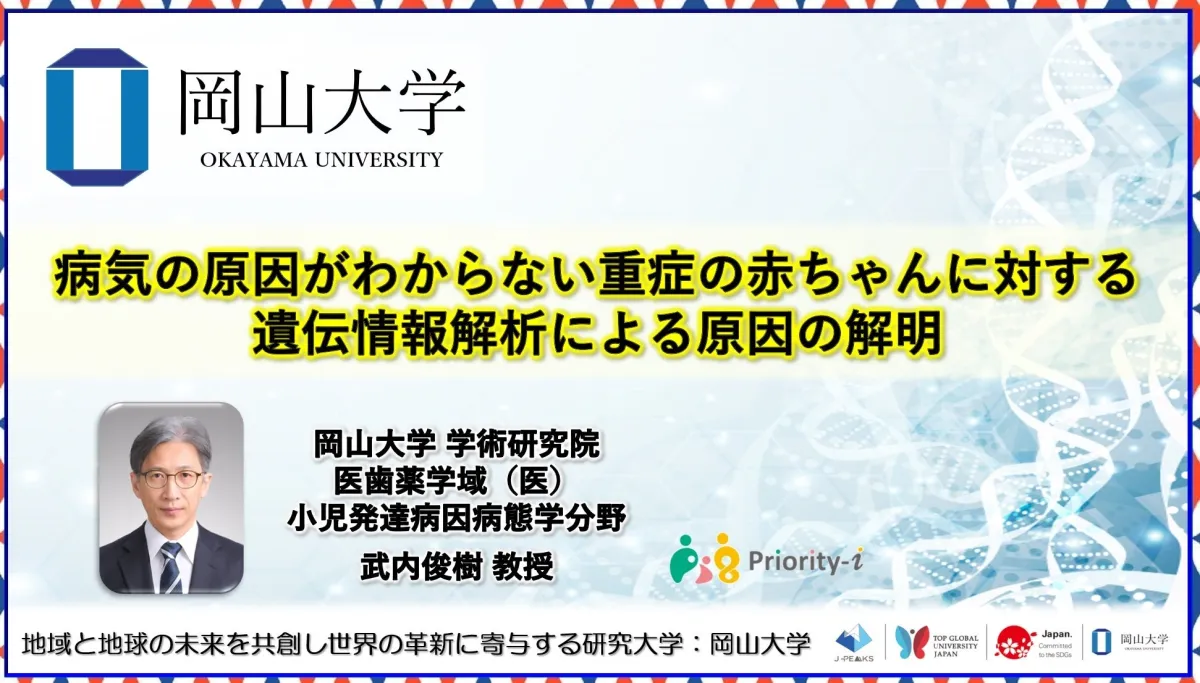
Okayama University's Groundbreaking Genetic Analysis for Severe Neonatal Conditions
Okayama University's Groundbreaking Genetic Analysis for Severe Neonatal Conditions
In a significant advancement in neonatal medicine, Okayama University, led by Professor Toshiki Takeuchi from the Department of Pediatric Developmental Pathology, has initiated a project that utilizes genetic analysis to uncover the causes of severe conditions in newborns that remain undiagnosed. Announced during the university's press conference on April 22, 2025, this project—titled “Rapid Genome Diagnosis for Severe Neonates”—addresses an urgent need for swift diagnosis and treatment in critically ill infants, who can deteriorate rapidly.
Professor Takeuchi and his research team are focusing on improving the diagnostic process, as many neonates exhibit non-specific clinical signs that complicate timely diagnosis. Traditional methods, such as G-banding analysis, have reported low diagnostic rates of only 3 to 4%, while microarrays achieve around 10 to 20%. To combat this issue, the project prioritizes the implementation of next-generation sequencing (NGS) technologies, aiming to enhance diagnostic accuracy significantly.
Utilizing cutting-edge genomics and omics analyses, the team is also developing a national network that incorporates remote counseling systems, facilitating rapid genetic diagnoses for severe neonatal cases across Japan. The Priority-i Project not only focuses on providing efficient diagnostic solutions but also aims to translate these findings back to bedside care, ultimately contributing to improved prognoses for affected infants.
As of April 2025, Okayama University will establish research hubs dedicated to this initiative, expanding its capabilities and fostering a collaborative environment for ongoing research. With high expectations from the academic community, this venture promises to enhance the university's role as a regional research leader.
Professor Takeuchi’s collaborative efforts, which include affiliations with Okayama University Hospital and local government agencies, exemplify a holistic approach to healthcare innovation. This initiative aligns with the university's commitment to supporting the United Nations’ Sustainable Development Goals (SDGs) and demonstrates its determination to address pressing health challenges affecting infants and the broader community.
As Okayama University continues to expand its research and development efforts, stakeholders are encouraged to follow their progress, particularly in realms that merge education, healthcare, and innovation. Further updates and developments regarding genetic diagnostics in neonatal care can be anticipated in the coming years.
The synergy between Okayama University and its surrounding community reflects its mission to not only lead in research but also to foster partnerships that advance shared goals of health and innovation for future generations.
For additional information on the Priority-i Project and ongoing developments at Okayama University, please visit their official website or contact the relevant departments involved in this groundbreaking research.
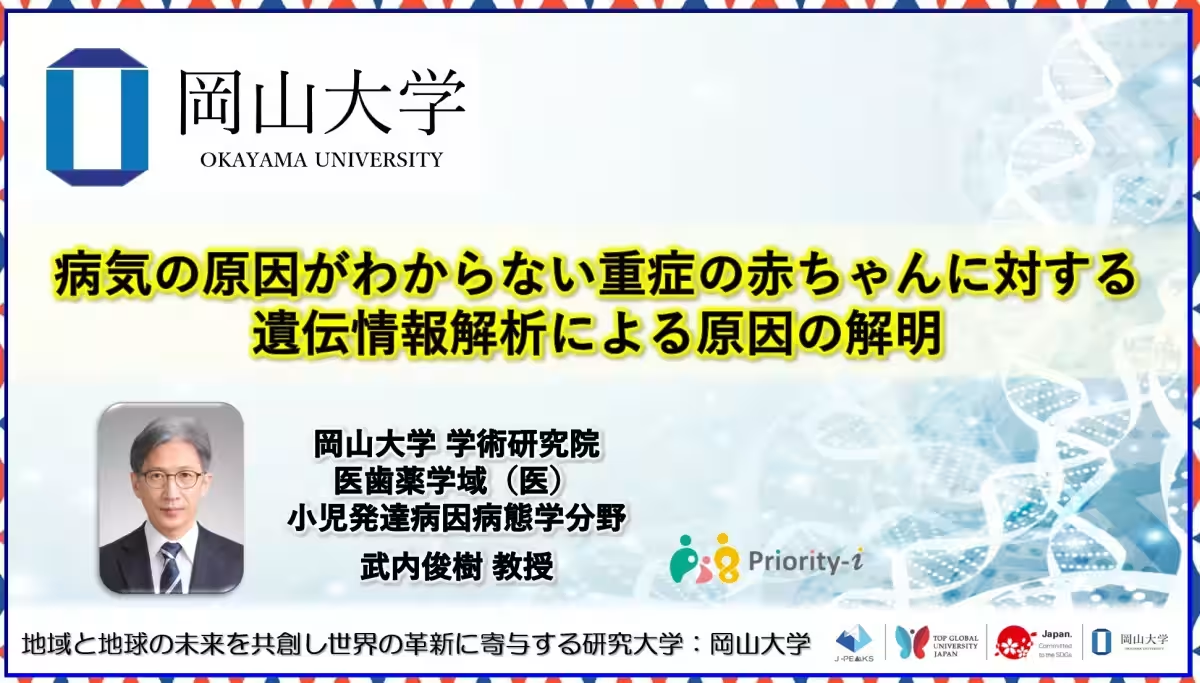
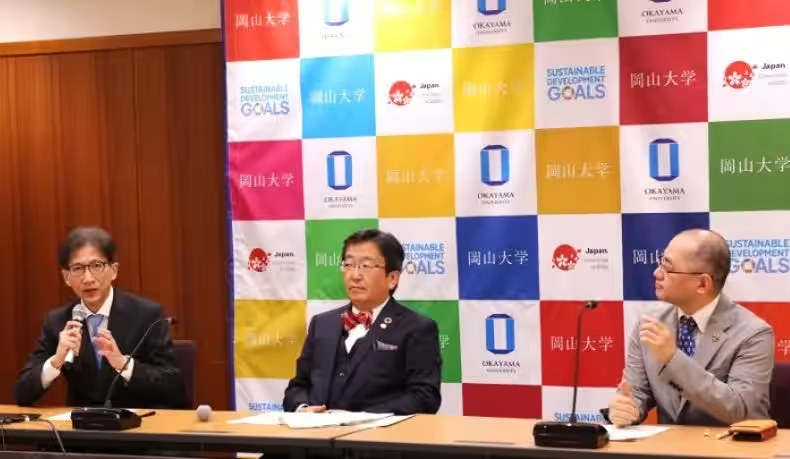
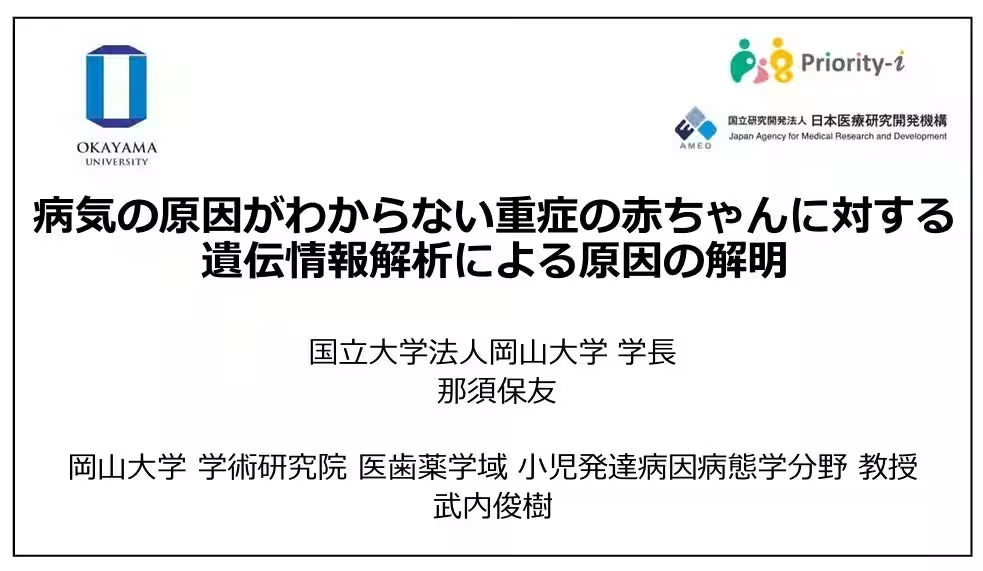
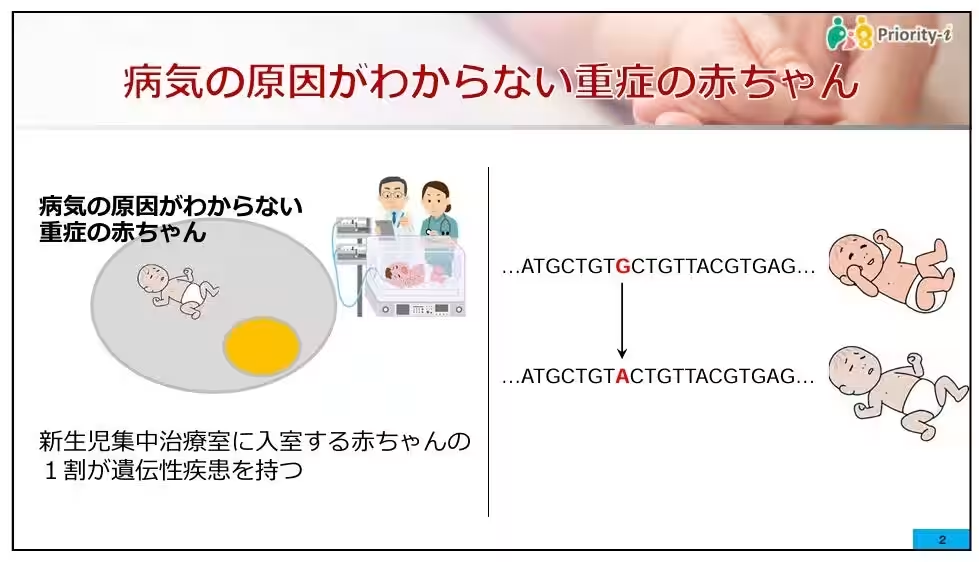
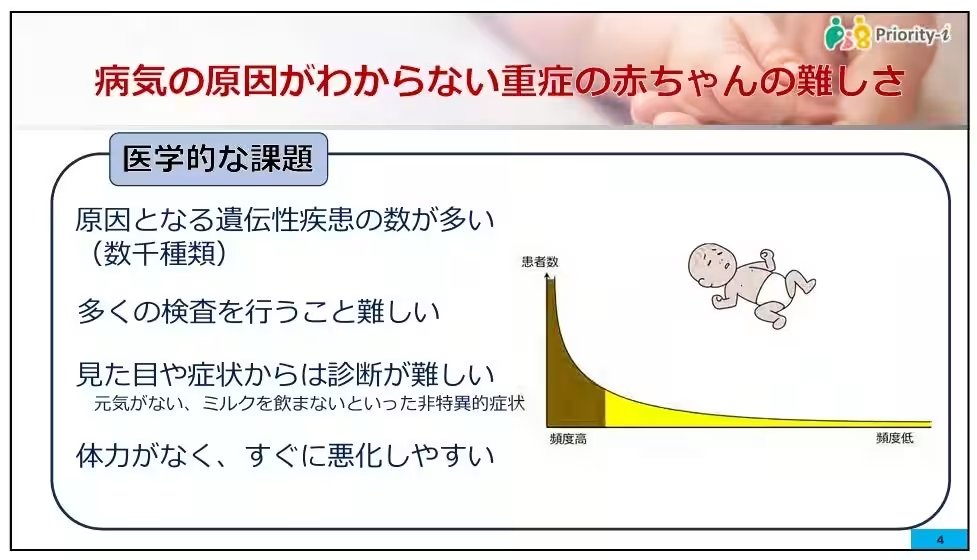
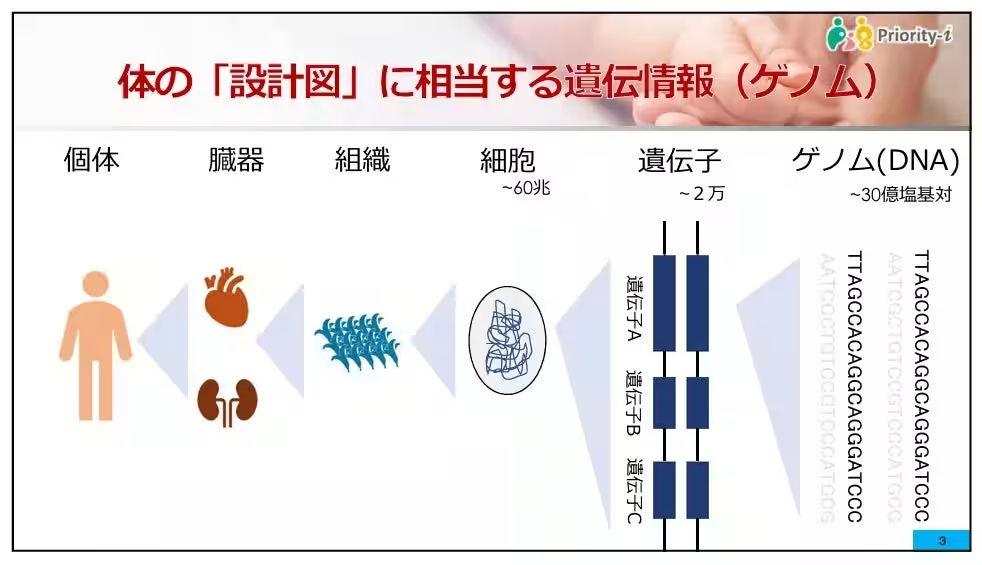
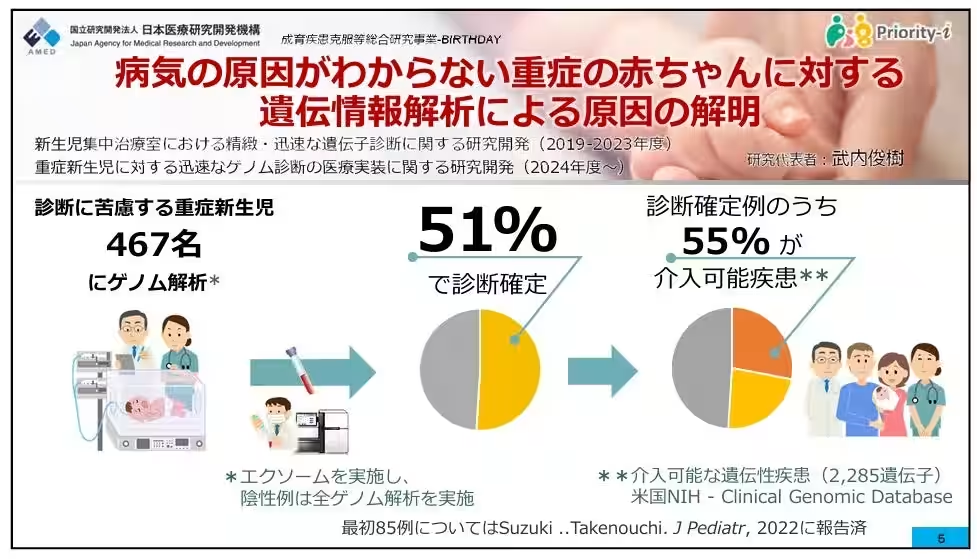
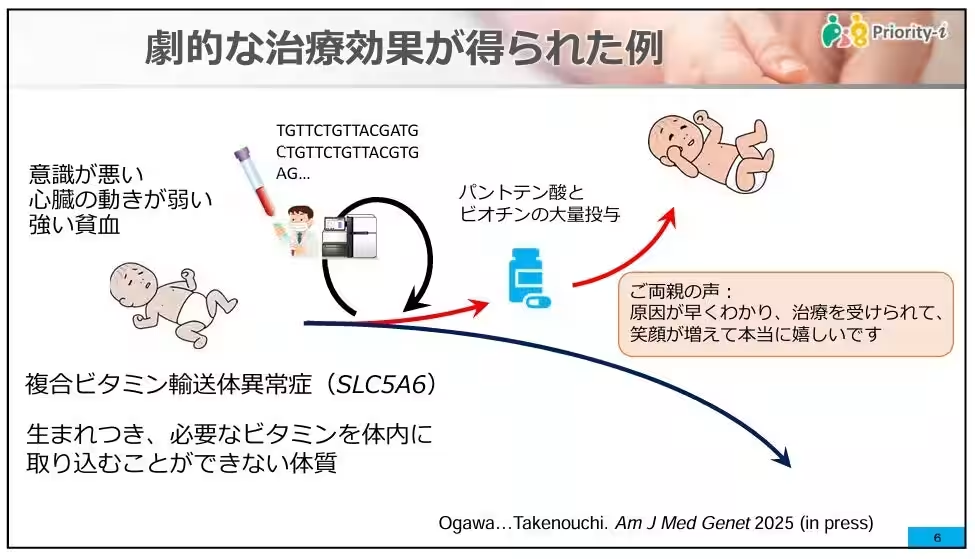
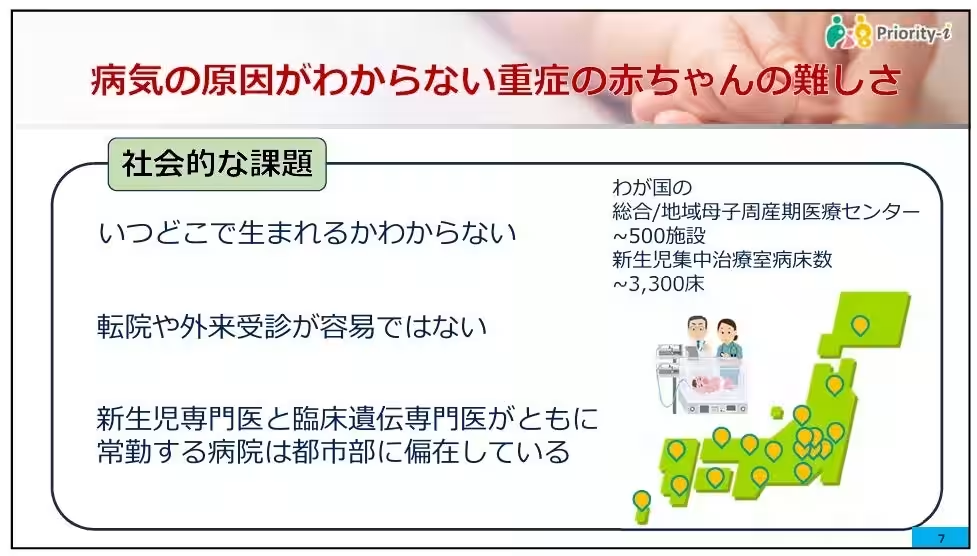
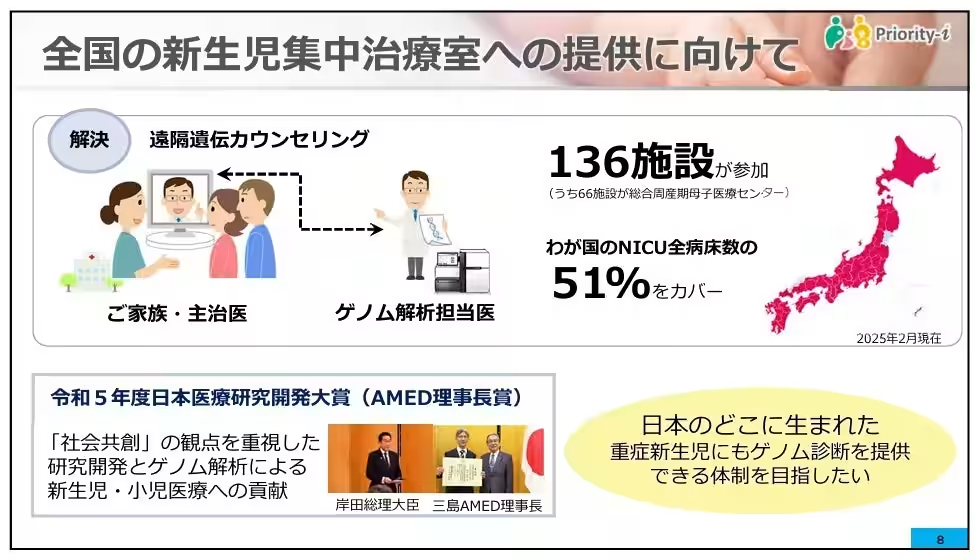
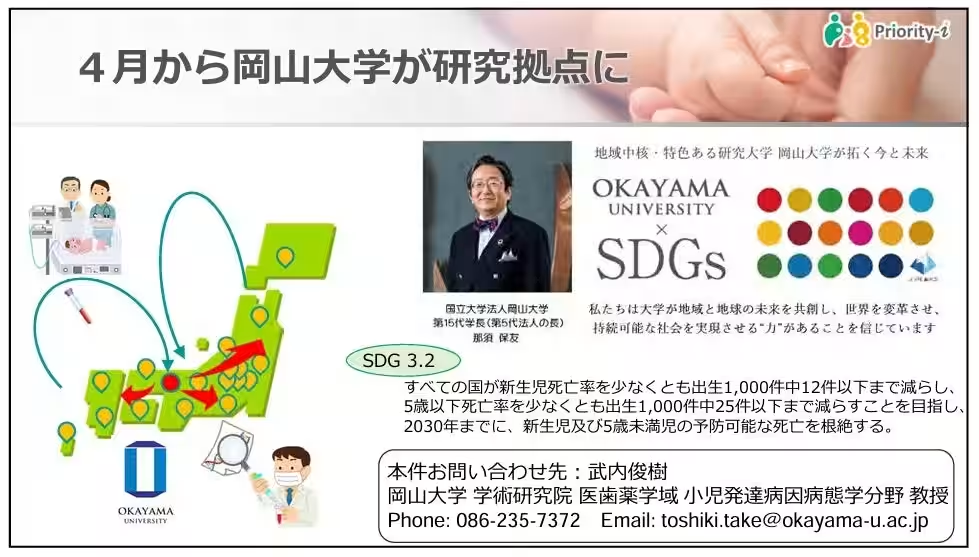



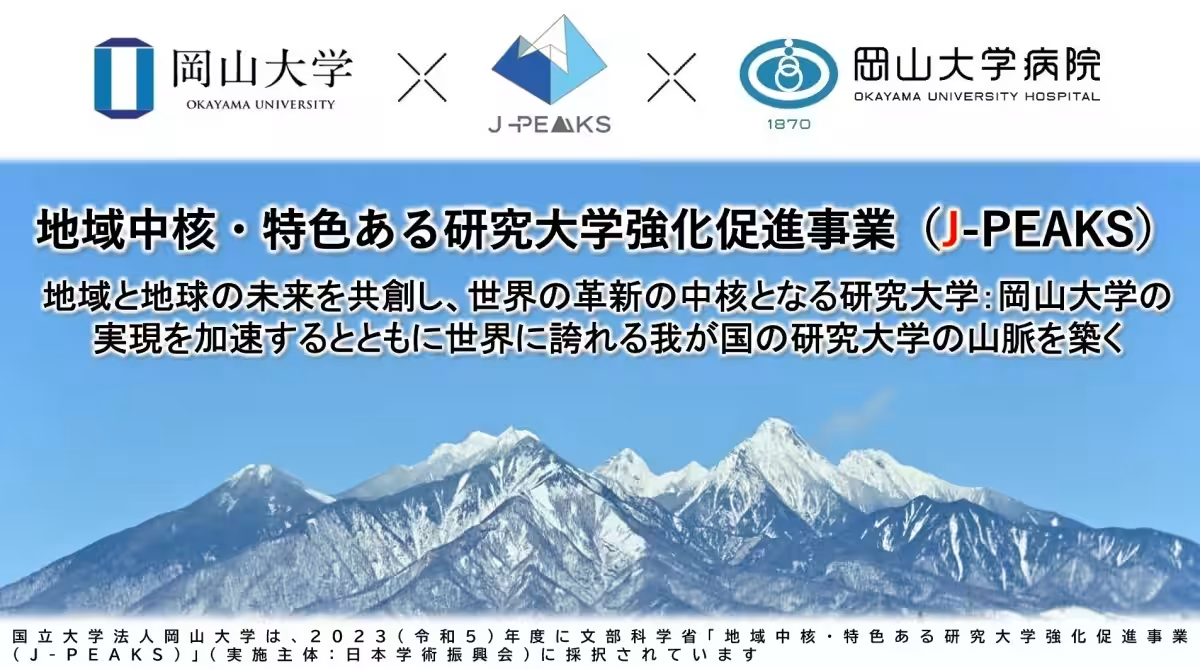
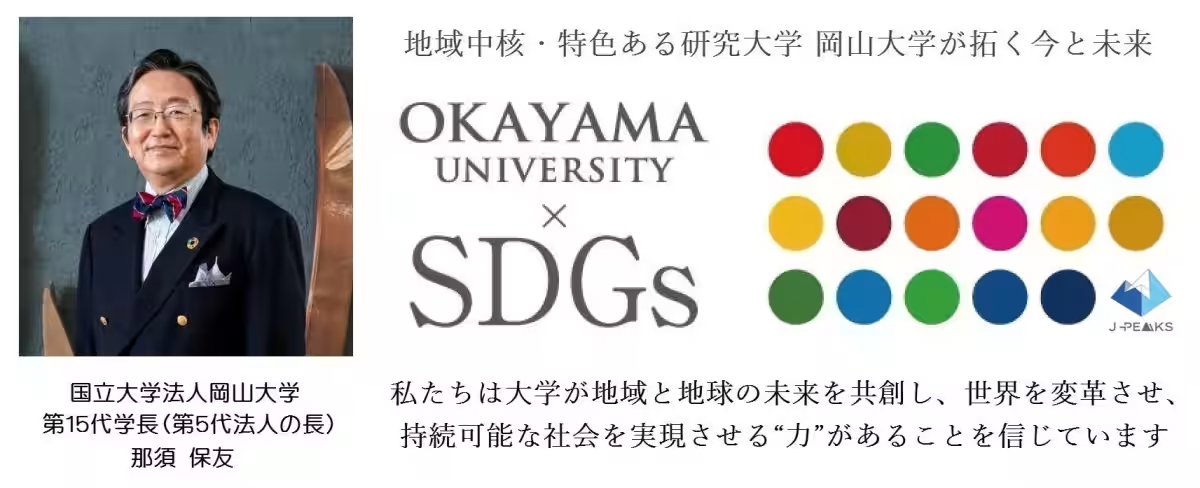
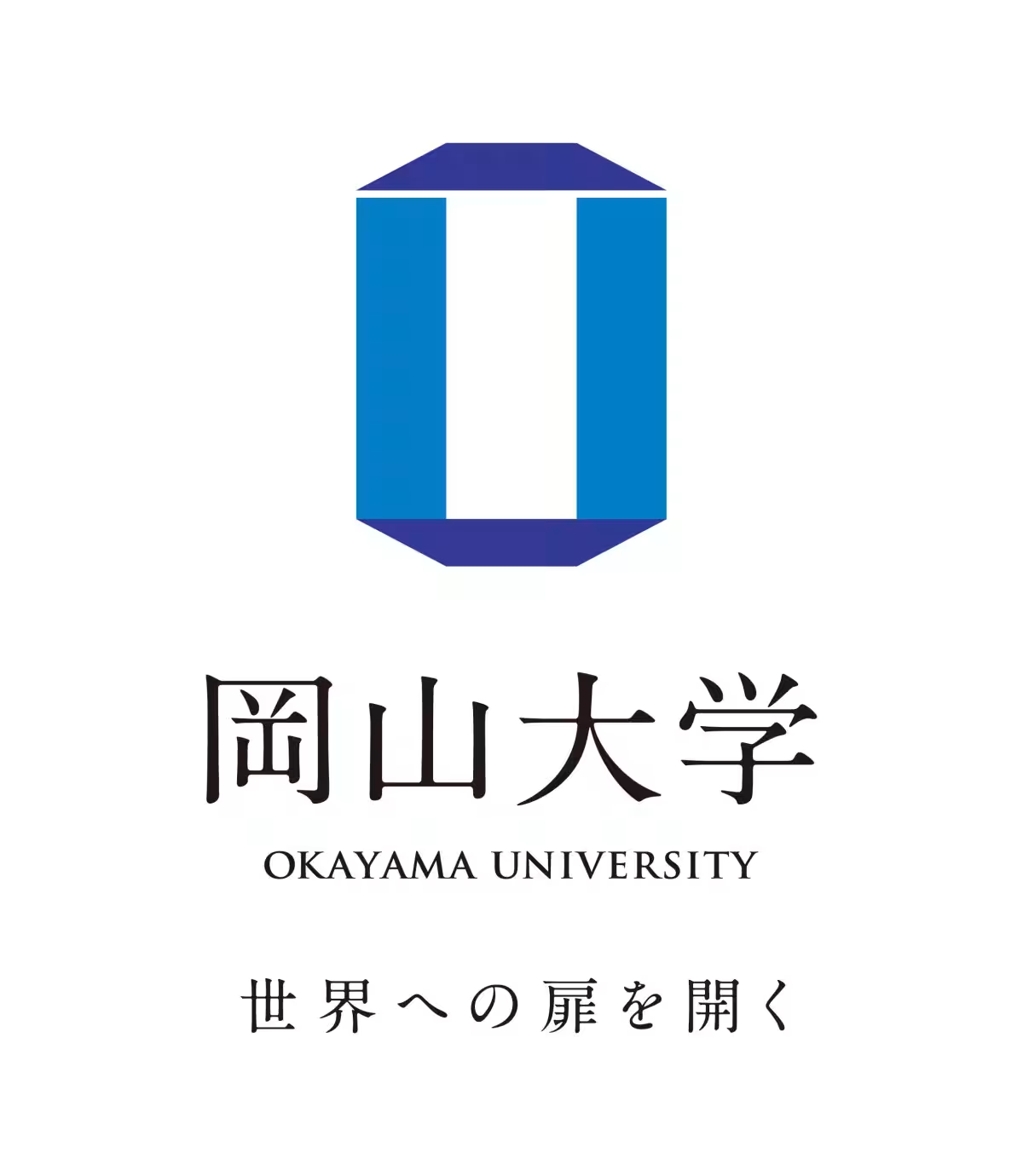
Topics Health)










【About Using Articles】
You can freely use the title and article content by linking to the page where the article is posted.
※ Images cannot be used.
【About Links】
Links are free to use.